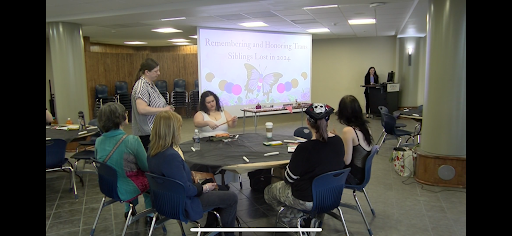Ben Mehic, Staff Writer
Supreme Court Justice Antonin Scalia died at the age of 79 on Feb. 13. The death of the longest-serving member of the Supreme Court made national news immediately after it was announced.
Luke Perry, associate professor of government and politics at UC, explained the significance of the justice’s death.
“The court, in American politics, resolve disputes and the Supreme Court – which is the highest court – resolves disputes that involve the Constitution,” Perry said. “When there are debates, at the end of those debates, the Supreme Court ultimately makes those decisions.”
His death, however, holds a lot more significance than just the facts that he was one of the most well respected, conservative justices in the court. Scalia’s death is meaningful for the future because it affects students’ futures.
“The Supreme Court makes decisions every year that potentially have tremendous impacts on our lives and who is on the Supreme Court is instrumental into what those decisions will look like,” Perry said.
“We know, from public opinion studies, that the millennial generation is much more liberal,” Perry said. “So, if I were a young adult — and I’m thinking about the rest of my life — the people in the Supreme Court are among the most powerful in the country…their decisions will impact our lives in a variety of different ways.”
Alma Lowry, Ph.D., an adjunct lecturer of government at Utica College, echoed the same reasons why students should care about Scalia’s passing.
“Right now, there is a case that is waiting to be decided which has to do with whether colleges can use race in any form at all to determine admissions.” Lowry said. “That question is in front of the Supreme Court. There are abortion cases, there are cases about unions…students at UC who are going into teaching, many of them will get salaries that are negotiated by a union.”
With the upcoming presidential election heating up, Scalia’s death has caused interest that goes beyond the Supreme Court. It has introduced the question of moral character and the influence it’s going to have on politics.
“Every issue is politicized, which I think is unfortunate,” Perry said. “Within 10 minutes of his death, republican presidential candidates were making the claim that his seat should remain vacant. That’s just a sad reflection of a 24-hour news cycle. There should’ve been time to mourn his loss and recognize his contributions.”
The presidential election has also put pressure on President Barack Obama regarding whether or not he should appoint the next justice – which, as Lowry pointed out, he has the constitutional right to do.
A justice’s death is unlike any other because it could potentially cause a ripple effect on how American lives are altered. Most college-aged students fail to recognize the importance of such a death.
“The more informed people are and the more involved, specifically, they are in this presidential campaign and participating in that, they can exercise their voice in shaping not only what the presidency will look like after the election, but what the Supreme Court will look like,” Perry said.
“There are all kinds of very important questions that go through the Supreme Court,” Lowry said. “The Supreme Court makes decisions that affect the entire country. The fact that we have same-sex marriage across the US is a result of a Supreme Court decision.”
While the passing of Justice Scalia is newsworthy because it is timely, it also carries a ton of significance because it impacts the lives of everyone in the country – even though they might not see it on the surface. UC students, like most, have opinions about social issues that get talked about on a daily basis. The only way to make your opinion matter, as Perry noted, is to get involved.
Featured Image: Photo by U.S. Supreme Court












